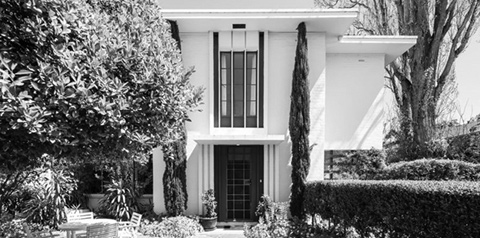|
Raymond
Certain names carry the weight of the times when they are fashionable. Names like Mitchell, Quentin, Benjamin, Nathan, have become popular. Adam is quite common too but what about Raymond? How many young things do you know called Raymond?
Further, conceding to fashion has its merits but a name like Cassius Clay can take you a long way until it somehow mutates into Muhammed Ali, the one who floated like a butterfly and yet stung like a bee. I know a composer called Raymond Chapman Smith. When we were at Lincoln College together, he was an affable, scholarly, magnanimous sort who tutored music at the Elder Conservatory, the music department of the University of Adelaide. Lincoln was devastatingly distant from the Oxbridge ideals but one learnt a lot about life nonetheless. Being a co-ed place, many loving bonds did form between the residents. Raymond being somewhat older than us freshmen and yet somehow not, he liked to pretend to listen to rock and roll but if he really liked it, it was for serious reasons. He illuminated on the arranging prowess of George Martin and the dastardly clever Beatles harmonies. He also tried to explain why it was difficult to tune the B string on the guitar. I missed the theory but he was right. After he left College, he had the stylistic temerity to go and live in a landmark building. It was the Deepacres Flats, a complex of apartments designed by the classically trained Jack McConnell, a pioneer of modernism in South Australia and an excellent architect. Before I regretfully lost touch with Raymond, I used the friendship opportunistically and did a little design theory report on its quirks and the unusual clarity with which those white walls got there.

Some likened Jack McConnell to Harry Seidler, an earlier version of the Star Architect - a student of Gropius - settled in Sydney where he fell in love with the landscape and the lifestyle, not to mention job opportunities.
Another Raymond - Raymond Williams - a Welsh scholar, is cited as a mentor to the literary critic Terry Eagleton. Of course that makes sense since Terry would have shown promise and it is quite probable that being thick skinned, he gained the attention of his professors at an early age.
They would both agree if one suggested that language is not merely a description but the very stuff of which ideas are made. For example one could infer that materialism, as a way of life, is something ready-made for and built-in to the very form of English language, similar to the way in which the Samurai code is built-in to Japanese. Thus one may begin to comprehend how both industrial capitalism and the attack on Pearl Harbour were somehow inevitable.
|